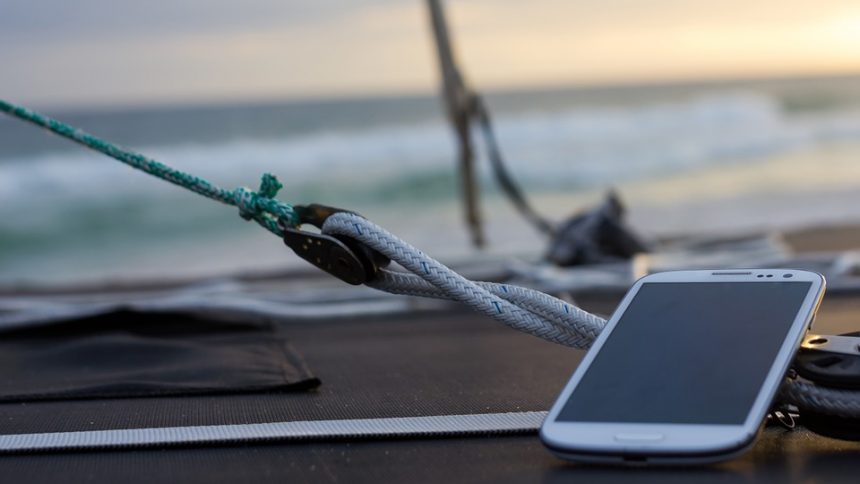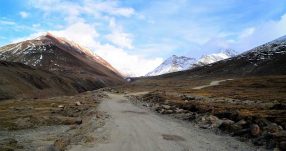Without a doubt, the technology revolution has had a massive influence on the way we travel and continues to do so. Adventure travel news and guides can be accessed with the touch of a button and it takes just moments to book flights and accommodation from your Smartphone. Nowadays, the informed adventurer uses technology every step of the way, making use of booking sites, online forums and websites and the endless list of useful apps that make travel easier than ever before. Exciting possibilities like space travel and self-driving cars look set to make great bounds in the not too distant future, although adventure travel in Mars is likely to be reserved for the very wealthy at first. Here are some of the ways in technology is influencing adventure travel today and predicted to in the future.
Photo: MaxPixel
Booking

Photo by: rawpixel.com
In the age of technology, we no longer need to physically go to a travel agent’s office to book trips. Thanks to the internet, we are more in control of every part of the trip itinerary than ever before and planning and organising adventure travel online is easier than ever before. In fact, 80% of people now do so. Platforms that facilitate travelers seeking lodgings at the home of a local have become more popular, with the likes of Couchsurfing and Airbnb becoming widely recognised. Speaking about the digital revolution and its impact on travel, James McClure, country manager for UK and Ireland at Airbnb said this: “In Airbnb’s case, technology has also brought tradition into the mainstream. The concept of staying in people’s homes when travelling is not a new one and dates back many centuries, but what technology has been able to do is accelerate this to a fast-moving and easily-accessible global phenomenon.”
Guides and information

Photo by: Porapak Apichodilok
The internet has largely replaced hardcopy guidebooks and is becoming increasingly so. There is a myriad of web content out there, from guides and tips offered for free on information-rich websites and blogs, review forums like Tripadvisor and countless cutting-edge apps. One of the biggest draws consulting an online adventure travel magazine or website is that the information is up to fresh and up to date with new developments. Meanwhile, guidebooks tend to be updated just once a year, if at all. Additionally, containing all that information that would fill libraries of physical books in your smartphone means packing lighter, which is always a plus.
Virtual reality

Photo: Bradley Hook
Virtual reality (VR) has finally broken into the mainstream market after remaining prohibitively expensive for so many years. Mainly utilized in the gaming world, VR is also finding itself playing a major role in marketing and planning adventure travel. Travel brands are making use of 360 videos and immersive experiences where you can virtually explore a destination thousands of miles away before you book. This is a whole new way to inspire wanderlust and offers customers an exciting and enjoyable way to plan trips. A good example of VR being used in this way is Marriott Hotels’ VRoom Service which allowed guests to use a Samsung Gear VR headset to experience travelling in Beijing, Chile and Rwanda. Over six in 10 travelers surveyed by Booking.com (64%) said they would opt to ‘try before they buy’ with a virtual reality preview. VR is also being used in the realm of extreme sports travel and marketing extreme travel adventures. This year, Red Bull launched a virtual reality service that allows those with a strong enough stomach to simulate the experience of skydiving, bungee jumping and other full-throttle activities, all from the comfort of your sofa.
Travel Apps

Photo by: Pexels
Booking.com predicts that 44% of travelers will use travel apps more in 2018. Smartphone technology continues to develop with the aim of reducing travel-related stress. Geo-location technology can direct you to your accommodation, while other apps will plan itineraries and even help you pack. Almost half of travelers surveyed (44%) will use travel apps more in 2018, with technology continuously developing to make travel stress free in 2018. This includes geo-location technology directing you to your accommodation, all within one click from your app, or planning activities while on holiday in just a few simple taps of your smartphone, as over two in five (41%) expect to do in 2018.
Increased connectivity

Photo by: StockSnap
The rise in globalisation through social media over the last decade or so has made the world smaller, allowing us to connect to each other from any location. This means that calling home while traveling abroad, what was once a costly phone call, can now be taken care of for free as long as you have a wifi connection. There are debates about whether increased social media use and time spent with our faces glued to a screen is actually making us less sociable. On the other hand, there are endless possibilities for travel and tourism opened up by how easy it is to connect digitally, overcoming the boundaries of physical distance. For example, the internet enables you to book yourself in for group-oriented travel adventures alongside like-minded people, creating opportunities to make new friends from all over the world. Travel is all about connections and technology is very helpful in connecting us – to people and places.
Biometrics

Photo by: U.S. Customs and Border Protection
Fingerprint reading and facial recognition will help to make the traveling experience safer, less stressful and more enjoyable. Biometric technology is beginning to revolutionise how travelers transfer safely through airports and ferry terminals all over the world. In Dubai International Airport, they have already implemented a biometric security screening system that makes getting through the airport a breeze, simply requiring travelers to walk through a tunnel fashioned to appear as an aquarium and look at the fish while embedded cameras take in your biometric information. As the numbers of people who fly are set to increase, biometrics provide a futuristic way to manage the extra numbers securely.
Liked this article? Looking for the latest in travel and adventure news? Then check out the rest of our articles at Adventure Herald. You can also like us on Facebook, follow us on Twitter or Instagram to keep up with our latest antics.
About the author
Fiona
Fiona is half Irish-half Italian and currently lives in Budapest. She is passionate about sustainability and loves nature, traveling and vegan food.
In adventure travel news, n innovative new natural desert reserve spanning 10 percent of the total area of Dubai has been launched in the UAE. The Marmoon Desert Reserve Project is set to be the site of several ecotourism projects and conservation efforts contributing to the protection and nurturing of the environment,…
Hot Topics
In adventure travel news, n innovative new natural desert reserve spanning 10 percent of the total area of Dubai has been launched in the UAE. The Marmoon Desert Reserve Project is…














